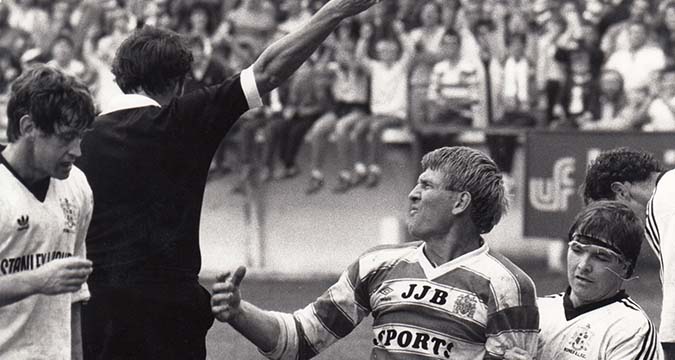 The Kiwi who made a career in Wigan
The giant Kiwi Graeme West signed for Wigan in 1983 and gave the club 14 years of wonderful service as player, captain, A-Team coach and head coach.
He captained the club to victory over Hull at Wembley in the classic 1985 Challenge Cup Final, and returned ten years later as coach, masterminding another tri
The Kiwi who made a career in Wigan
The giant Kiwi Graeme West signed for Wigan in 1983 and gave the club 14 years of wonderful service as player, captain, A-Team coach and head coach.
He captained the club to victory over Hull at Wembley in the classic 1985 Challenge Cup Final, and returned ten years later as coach, masterminding another tri Rugby League Heroes: Graeme West
 The Kiwi who made a career in Wigan
The giant Kiwi Graeme West signed for Wigan in 1983 and gave the club 14 years of wonderful service as player, captain, A-Team coach and head coach.
He captained the club to victory over Hull at Wembley in the classic 1985 Challenge Cup Final, and returned ten years later as coach, masterminding another tri
The Kiwi who made a career in Wigan
The giant Kiwi Graeme West signed for Wigan in 1983 and gave the club 14 years of wonderful service as player, captain, A-Team coach and head coach.
He captained the club to victory over Hull at Wembley in the classic 1985 Challenge Cup Final, and returned ten years later as coach, masterminding another tri 